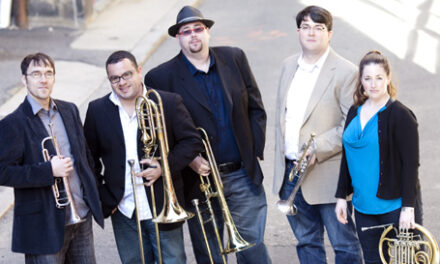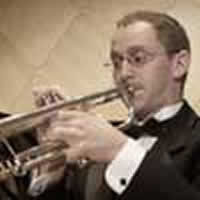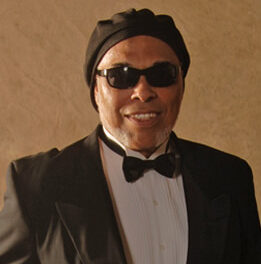Overcast skies and a 17-degree temperature drop since the previous day set the stage admirably for the second Summerfest concert, presented in Cary’s Regency Park on June 12. The program was devoted to “Russian Masters” and on the podium was William Henry Curry, identified in the series booklet as “associate conductor” (lower-case “a” and “c”) – it is necessary to read the bio on page 8 of the handout (or the roster, on pages 40-43) to learn that he is, again, Summerfest’s Artistic Director. On the platform was an orchestra billed as the NC Symphony, but this is the standard Summerfest orchestra, based on regular NCS players but missing many of ’em – including many principals – and augmented by fill-ins and some new faces. The program itself was one of four Curry himself leads this season – Bobby McFerrin kicked off the series and NCS Assistant Conductor Kenneth Raskin directs the others – and one of only two that feature substantial “classical” works. Perhaps because there was no headliner, attendance was off, compared with other Summerfest events, but the program cast the spotlight on the orchestra, and the crowd was clearly pleased with the performances.
The evening began with over-amplified introductory remarks and commercials, rendered by WCPE’s David Ballantyne. One reason ticket prices are low is that these concerts are sponsored, but so too are all of the NCS’ offerings, and the credits appear in the programs…. A new feature was also announced – two large rear-projection screens, mounted on the towers at the front of the amphitheatre, carried closed-circuit video from four TV cameras. The net result of this is that one hears the orchestra in its amplified splendor and can watch close-ups of players as the cameras pan around. If these events were carried on cable TV, it wouldn’t be necessary to go. As with operatic supertitles, one could ignore the screens, but the videos were useful in showing who played what – and which of those aforementioned principals weren’t there. The new venture was only moderately successful as video: thanks to inadequate lighting on the stage, poor color resolution, and ambient light, till it got dark (and this will worsen as the days get longer), most faces appeared in shadows, Curry’s white shirt looked yellow, and – at the outset – the pictures were basically useless. Summer orchestral concerts aren’t stadium shows, but the addition is basically harmless, and if it is tweaked a bit, it may provide a new dimension for these offerings.
In the first half, the music included the Overture to Glinka’s Ruslan and Ludmila , Rimsky-Korsakov’s familiar version of Mussorgsky’s “Night on Bald Mountain” (from The Fair at Sorochinsk), and an altogether admirable suite of excerpts from three of R-K’s own operas – the popular “Flight of the Bumblebee,” from Tsar Saltan, the “Lithuanian Dance” and “Procession of the Nobles” from Mlada, and the “Dance of the Buffoons” from The Snow Maiden. The first Mlada excerpt was particularly welcome, since it is rarely heard nowadays. The “Bumblebee” was probably the evening’s weakest selection, since the sections of the orchestra continue to be spotlit by the amplification system, and this piece doesn’t involve everybody at first. (There is strength in numbers, even in professional ensembles.) That said, it may be worth noting that all these selections were well received and warmly applauded.
The second half was given over to a glowing reading of Tchaikovsky’s Fifth Symphony, which featured stellar contributions from Jimmy Glimore and his clarinet colleagues, from French hornist Kimberly van Pelt, and from many other excellent artists. Curry is passionate about Russian music and it shows in everything from that school he undertakes, including – in Cary – his noteworthy introduction to the score, which explained some of its complexities in ways that surely helped those who were experiencing it for the first time. Not much more needs to be said here about the familiar and popular symphony, but his leadership was inspired and he elicited outstanding work from his musicians. Encores during the NCS’ winter season are rare, but here there was one – the Hungarian Dance from Swan Lake sent the public away with light steps.
This series continues with concerts on 6/19, 6/26, 7/4 (free), 7/10, 7/17, and 7/24. The finale, with pianist Michael Lewin, is the second of the mostly-classical programs, featuring music by Bernstein, Ives, Gottschalk, Gershwin’s rarely-heard Second Rhapsody, Delibes, and Stravinsky’s Firebird Suite. For details, see our Triangle calendar.













